‘The US won’t sacrifice Chicago for Warsaw’: Russian experts explain why NATO brushed the Poland missile incident under the carpet
How the US-led reaction to a Ukrainian weapon hitting the bloc’s territory exposes the imbalance within its ranks
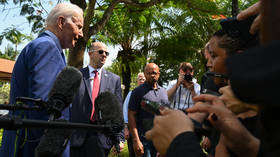
The media erupted after a missile landed on Polish territory this week and took the lives of two civilians. Given the accusations leveled at Russia in the hours following the incident, the invocation of Article Five of the NATO Treaty governing collective security would not have come as a complete surprise.
Of course, this undoubtedly would have led to the beginning of World War III.
However, it turned out that the West was not looking for a direct armed conflict with Russia. Western European and American officials hurried to tone down their indignation and put a lid on the situation.
Who is at fault?
The incident in the Polish village of Przewodow, which borders Ukraine, once again raised questions about the efficiency of NATO’s mechanisms for joint defense. Within 24 hours of the strike, two facts had been established conclusively: What had been fired was an S-300 anti-aircraft guided missile and two people had been killed.
Soon after the incident, Poland’s Foreign Ministry rushed out with the conclusion that what landed in the village was a “Russian-made missile.” The S-300 was developed by the Soviet Union when both Moscow and Kiev were members. Russia did not exist as an independent state at the time.
Polish President Andrzej Duda was less categorical, saying that there was no verified information about the origin of the missile but that “most likely, it was a Russian-made rocket.”
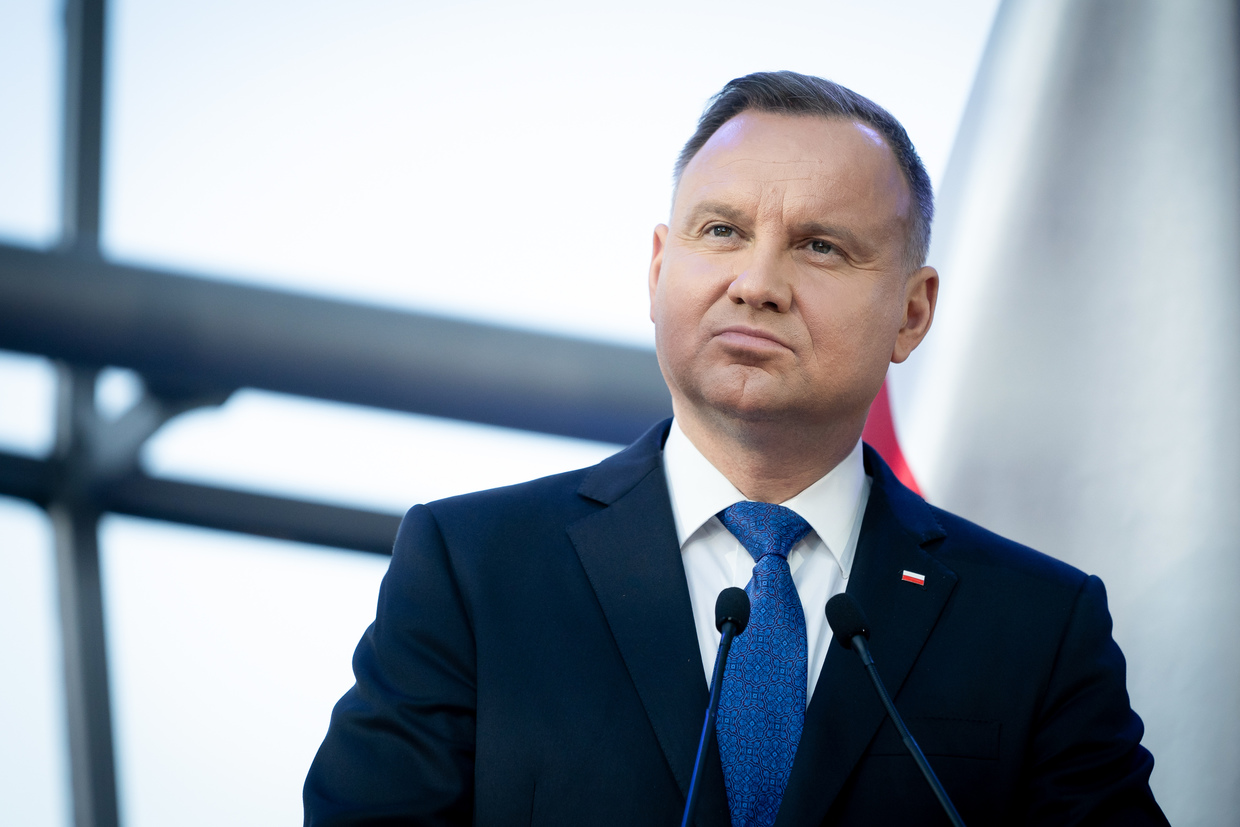
The Polish Foreign Ministry summoned Russia’s ambassador in Warsaw, Sergey Andreyev. Meanwhile, Prime Minister Mateusz Morawiecki convened an emergency meeting of the National Security Bureau and members of the Committee for National Security and Defense. At the meeting, a decision was made to put some military bases in the country on heightened alert.
Russia’s Defense Ministry stated that the missile that landed in Poland had been launched from a Ukrainian S-300 system. The ministry added that Russia had not attacked any targets near the Ukrainian-Polish border and that precision strikes had been carried out only on the territory of Ukraine and not within 35km of the border with Poland. The Russian military provided assurances that all missiles that it had launched struck their targets precisely and that accusations of its rockets falling on Poland were an intentional provocation.
In a conversation with RT, military commentator and retired Colonel Mikhail Khodarenok noted that the most likely culprit in this incident is Ukraine’s 540th Anti-Aircraft Missile Regiment stationed in Lviv. The regiment has been receiving 5V55R guided missiles from a factory in Vishnevy near Kiev, which began producing them after Ukraine gained its independence.
“For the 540th Regiment the evening of November 15 probably played out the following way. The regiment was engaged in combat operation and was firing at aerial targets. It is entirely possible that one of the divisions (or both using concentrated fire) were carrying out launches at pursuit courses of an azimuth of 240-300 degrees (in a westward direction).”
“It is possible that one of the guidance channels experienced an error (this is by no means rare in a difficult and fast-paced air battle), and two 5V55R guided missiles ended up in Polish air space. Following the misfire, the missiles switched to self-destruction mode, via the command of the time mechanism (or by full power being switched off), the warheads exploded, and the debris fell to the ground,” according to the colonel’s account of what may have happened.
Kremlin spokesman Dmitry Peskov also noted that the incident in Poland could not be considered grounds for escalation. He labeled the statements of a number of Western politicians as “another example of hysterical Russophobia.”
Shortly thereafter, Warsaw itself acknowledged that it had likely falsely implicated Moscow. Duda himself said it was “highly likely” that the missile was from Ukraine’s air defenses.
Western leaders preferred to refrain from aiming aggressive accusations at Russia. The US Department of Defense stated that it did not possess evidence that could confirm reports of a Russian missile falling on Polish territory. President Joe Biden noted that preliminary information pointed to the missile having not originated in Russia. Furthermore, as Reuters later reported, he warned G7 leaders that what came down in Poland may have been a Ukrainian air defense missile.
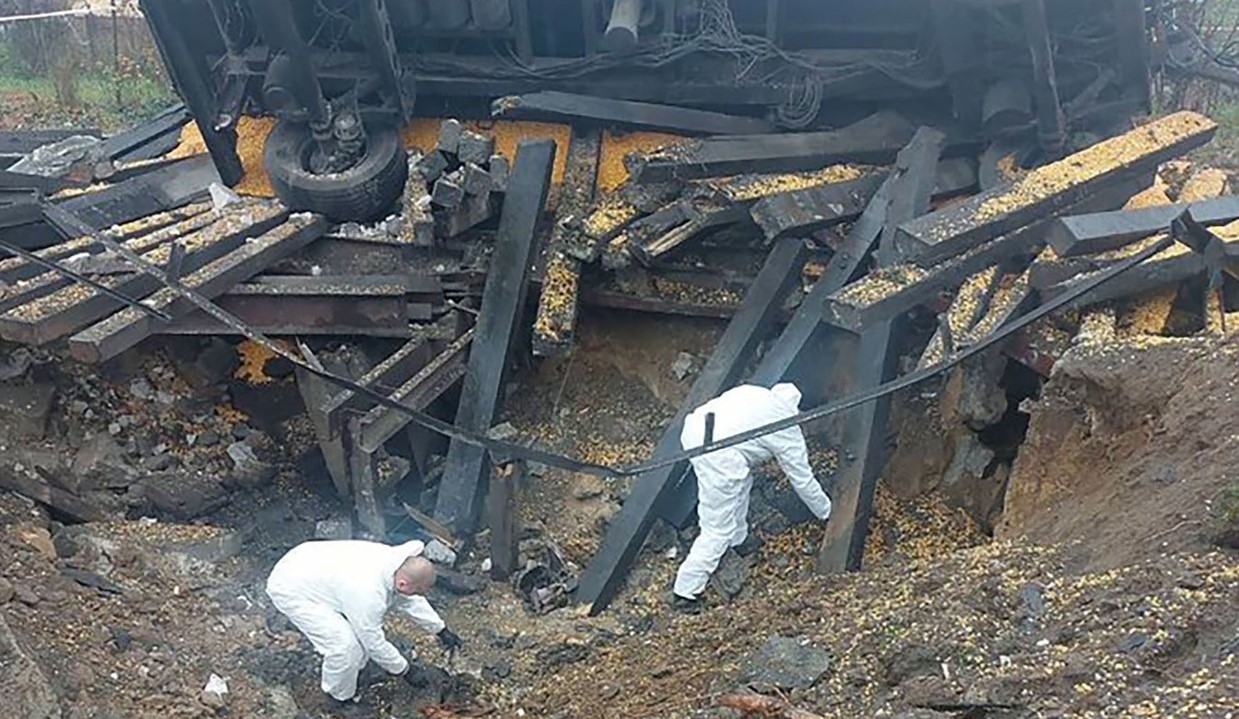
Peskov characterized the American reaction as restrained and professional.
As Colonel Khodarenok said, “the White House’s equanimity is clearly based exclusively on irrefutable data from US intelligence.”
French President Emmanuel Macron also refrained from categorical assessments, stating that it was currently impossible to establish who is responsible for the missile incident in Poland.
NATO head Jens Stoltenberg explained why the missiles weren’t intercepted by air defense, saying that there had been no warning of an imminent attack and the incident didn’t have such characteristics.
Could NATO trigger Article Five?
Immediately following reports of the strike on Polish territory, the media began talking about Articles Four and Five of the NATO Treaty. Article Four is the second-to-last step in the US-led bloc’s system of reacting to threats faced by member nations. It calls for members to carry out consultations with each other if one of their number faces a threat to its territorial integrity, political independence, or security.
Article Five of the Washington Treaty entails an immediate collective military response by NATO, which must be given if any treaty signatory is subject to attack. This article has only ever been invoked one time: After the terrorist incidents of September 11, 2001, in the US after which an American-led coalition invaded Afghanistan.
It is noteworthy that one of the first to comment was Ukrainian President Vladimir Zelensky, who placed responsibility for the “missile strike” on Russia. He said it constituted an attack on collective security and a significant escalation, clearly suggesting that it amounted to an assault on a NATO member.
Alexey Danilov, the secretary of Ukraine’s National Security and Defense Council (NSDC), said that Kiev did not agree with the West’s conclusion that the missile was of Ukrainian origin and demanded that his country’s experts be granted access to the site. He said that Kiev wanted to hand over to its backers “evidence of the Russian trail” and was asking how they reached the conclusion that it had been a Ukrainian anti-air missile.
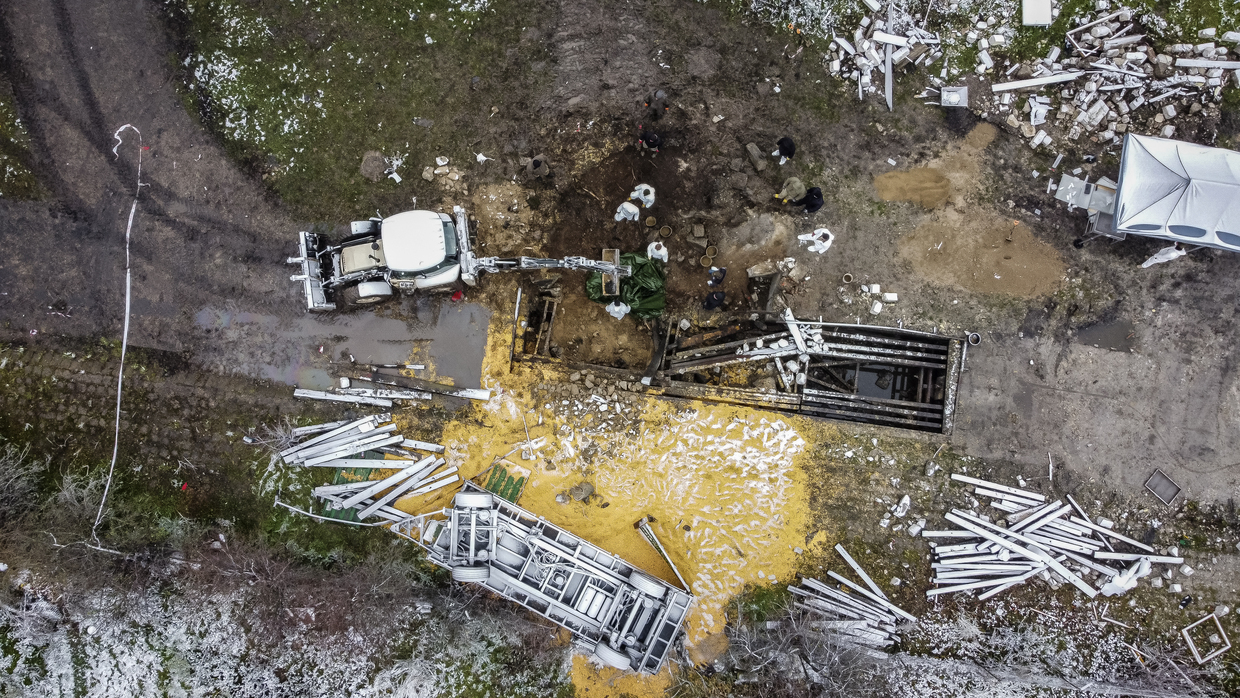
However, as Colonel Khodarenok noted, it would not be a problem for Warsaw to provide evidence of the missile’s origin, given that anti-aircraft guided missiles don’t just disintegrate completely after the warhead is detonated.
“Fairly significant fragments of the missile remain, which allow for the identification number (series, batch, number, year made, manufacturer) of the missile itself to be identified fairly easily, as well as the numbers of its components. Furthermore, the technical labels on the fragments would likely have been in Ukrainian. The missiles for the 540th Regiment have been manufactured at a factory in Vishnevy near Kiev in the years following Ukrainian independence. Accordingly, all labeling should be in the national language. The Polish specialists who arrived on the scene were probably aware of that from the very beginning, as soon as they began studying the missile fragments,” he said.
As a result, the conclusion is that for Ukraine, the incident carried more political than military significance.
“Ukraine’s desire to drag Poland and the US into the conflict is clear, so that there could be grounds to invoke Article Five,” Konstantin Blokhin, the lead researcher of the Center for Security Research of the Russian Academy of Sciences, told RT. “Ukraine wants the US to get involved in the conflict directly instead of waging a hybrid war.”
However, the US clearly does not intend to become involved directly, Blokhin believes.
“They don’t want to go to war over Poland, let alone Ukraine. And the Poles don’t want a war either. This is why everyone’s backing down now. Both Biden and Stoltenberg have said many times that any military confrontation with Russia would lead to World War III. They want to solve all their problems at a lower cost by using Ukraine,” he added.
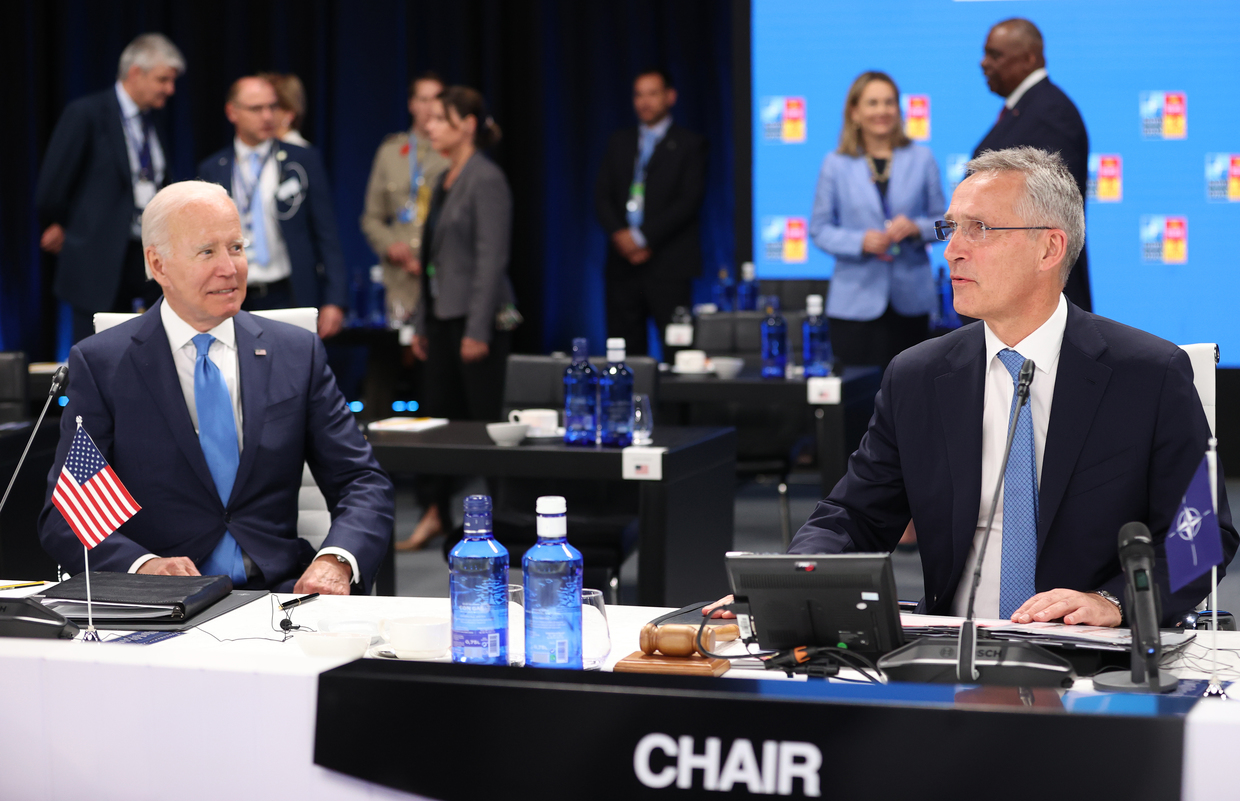
Meanwhile, Poland has already rethought its plan to invoke Article Four. “The course of events and the data that came in overnight have led us to believe it wasn’t a deliberate attack on Poland. According to our information as of this moment, there wasn’t a plan to attack Poland,” Morawiecki said.
This was an entirely expected decision, given that the US is wholly uninterested in invoking the article on collective security.
“We approached the moment of truth in the confrontation between the collective West and Russia. When it happened, it became clear that an attack by Russia could be claimed. This situation tested the effectiveness of NATO’s strategy for ensuring the security of the collective West,” Senior Research Fellow at the Institute for US and Canadian Studies Vladimir Vasiliev told RT.
He noted that the incident itself featured an element of happenstance, but that it helped shed light on a long-standing question: To what extent is the West prepared to invoke Article Five to defend NATO members? As Vasiliev noted, in this situation, the West “put the brakes on everything,” and the US quickly took cover behind the version that it was a Ukrainian rocket.
“There was always a question about the extent to which the US would be prepared to intervene on behalf of Riga, Vilnius, or Warsaw, and in doing so sacrifice Boston, Chicago, or California. And now it becomes clear that there is a problem and that the US is not willing to sacrifice its own security, its own territories,” Vasiliev said.
In his words, this episode is extremely important for Russia, because it shows that the US is not prepared to invoke Article Five until there is a danger to the country itself or at least to some of the most important member states of the bloc, primarily Western Europe.
“There is a certain understanding that conflicts such as this one should be resolved by others. The US will gladly put Poland, the Baltic States, Bulgaria, and Romania in the line of fire while itself staying out of the war zone. That’s where the entire NATO architecture begins to crumble. Domestic politics will always take precedence,” Vasiliev added.
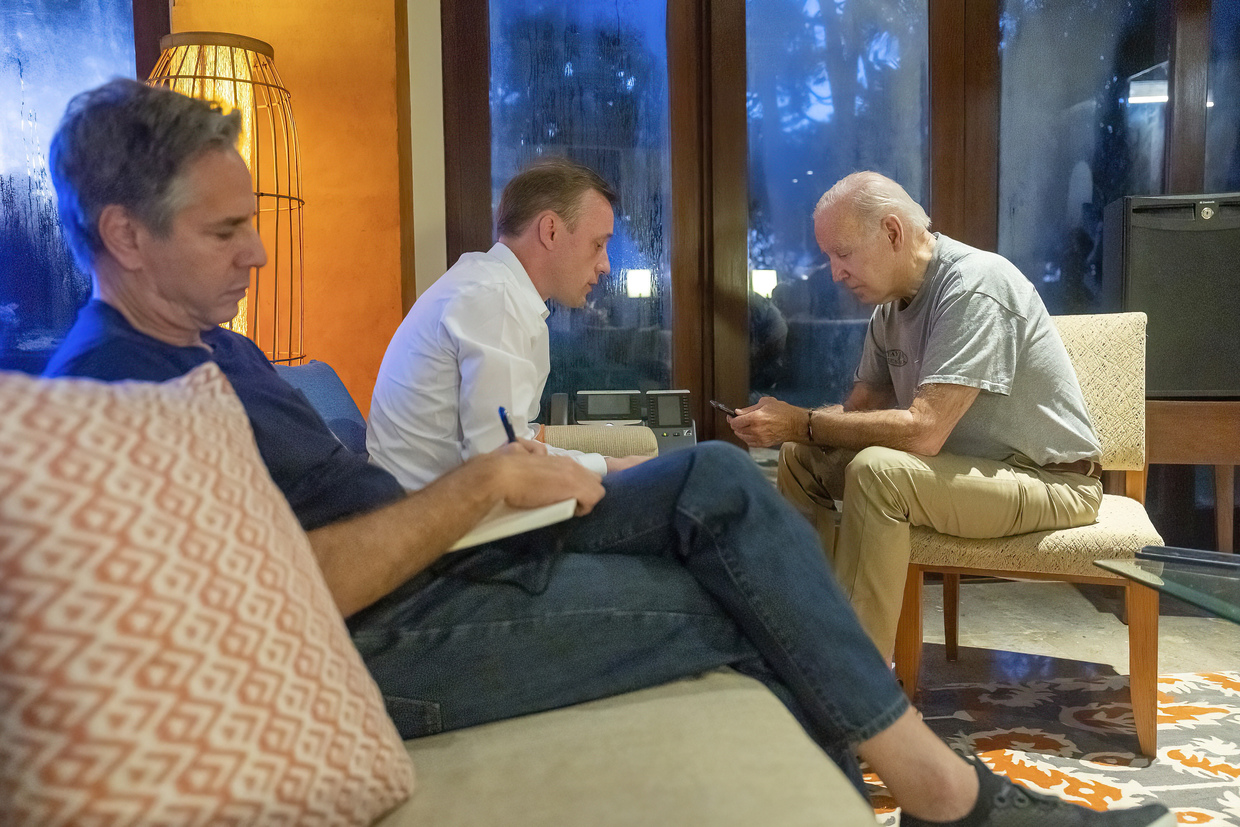
From this situation, he believes, a far-reaching conclusion can be drawn: Ukraine in any shape or form is not wanted by NATO. Vasiliev says it is clear that the US is playing a geopolitical game against Russia by using Ukraine, which is expendable. This allows the vital interests of Washington to remain untouched. According to him, the countries of Eastern Europe are equally considered not to be vital interests, as are Finland and Sweden, and likely Türkiye.
What can we expect in the future?
The experts believe that what initially seemed to be a major story will end up being swept under the rug, and within a week, nobody will remember it. It is already clear enough that the West will stick to its rhetoric that what landed in Poland was a Ukrainian missile, meaning that not only are there no grounds for invoking either Article Four or Five of the NATO Treaty, but that there won’t even be any sanctions related to the incident.
“We don’t know what the Ukrainians will be told privately, probably something along the lines of ‘don’t do that again.’ But from the standpoint of public policy, the question will be put to rest, because Russia isn’t at fault and Ukraine is a friendly state that is just trying to fight back. In any case, the general message that is already being articulated is that Russia is at fault anyway, because if not for the war in Ukraine, this wouldn’t have happened,” Valdai Discussion Club Director Fyodor Lukyanov told RT.
In fact, exactly this kind of statement was made by US National Security Council spokesperson Adrienne Watson, who emphasized that “whatever the final conclusions may be, it is clear that the party ultimately responsible for this incident is Russia” because it “launched a barrage of missiles on Ukraine specifically intended to target civilian infrastructure,” and therefore Ukraine had “every right to defend itself.”
The main outcome from this situation will likely be NATO boosting its own air defenses, as well as supplying Western air defense weapons to Ukraine, Oleg Barabanov, professor of international relations on the World Economy and International Affairs faculty at the Higher School of Economics, believes.
Colonel Khodarenok agrees that such an outcome is quite likely:
“There is every reason to believe that the near-term ramifications of the incident in Przewodow are that the Ukraine Defense Contact Group (the Ramstein-7) in Washington, DC, which got underway on the following day, will increase military aid to Ukraine.”
Ultimately, notwithstanding the strident rhetoric of recent months, at least in the first days after the incident, the US and NATO showed an unequivocal reluctance to entertain the possibility of a direct military clash with Russia. Indeed, they seem to be going to great lengths to avoid one.
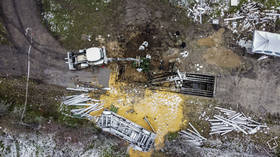
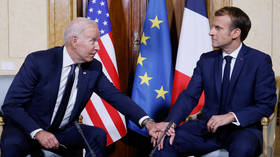
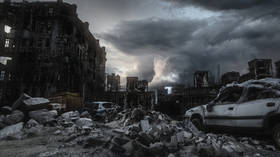
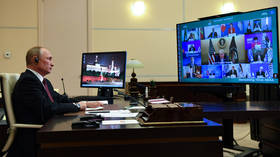
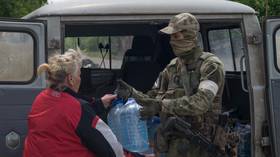

0 Comments:
Post a Comment
Subscribe to Post Comments [Atom]
<< Home